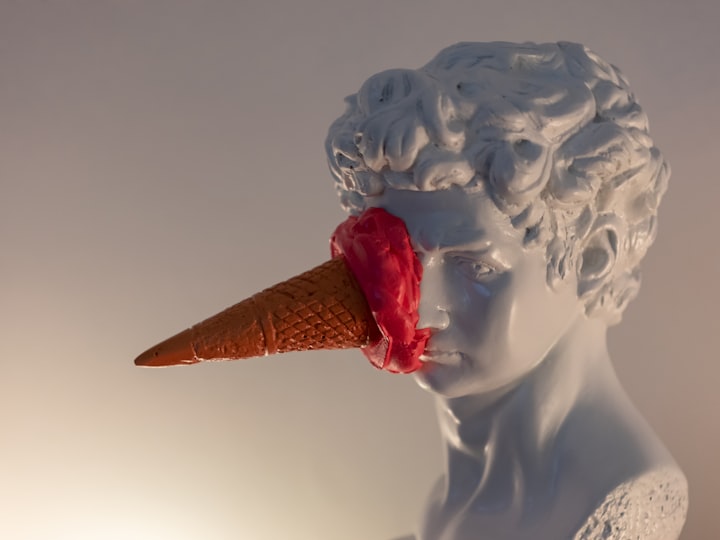What Is Senryu?
a brief history

In the spirit of the ‘Snafu Senryu’ challenge, I did a little digging into the art of Japanese poetry to understand a bit of the history of Senryu, in hopes that it would inspire a few gems (spoiler alert—it did!) Senryu is a form of Japanese poetry that shares a common structure with traditional haiku but serves a different purpose. Like haiku, senryu consists of three lines with a syllable pattern of 5-7-5. Unlike haiku, however, the form is more focused on human nature, rather than the natural world. Senryu often delves into the humorous, satirical, or ironic aspects of daily life and the human experience.
Senryu has a rich history that dates back to Japan's Edo period (17th-19th centuries). It emerged as a satirical form of poetry, often used in jest at social gatherings. Over time, it evolved into a respected art form, appreciated for its wit and insight into humanity. Understanding the historical context of senryu helps us appreciate its cultural significance.
Like its cousin the haiku, the structure of senryu consists of three lines with syllable counts of 5-7-5. Though of course, variations in syllable counts are seen throughout examples both old and new of this art form. As with most poetry, its writers enjoyed taking their license wherever they could. The form’s namesake, by Karai Senryu, is a perfect example of this:
As a man fond of both
loose women and senryu—
please remember me.
—Two senryu by Karai Senyru
Like the women Karai is fond of, the structure of the senryu, too, is loose, with the first and second line both composed of 6 syllables as opposed to the 5-7-5 traditional structure. If it’s good enough for the namesake, it’s good enough for those who carry on the tradition. This concise format challenges poets to convey their ideas and emotions succinctly, making each word and syllable count.
Haiku often convey a sense of serenity and contemplation, seeking to capture the beauty and depth of nature's moments. Senryu, on the other hand, adopts a range of tones, including humor, satire, irony, and even cynicism. Haiku are often written to evoke a sense of awe or contemplation, celebrating the natural world. In contrast, senryu aim to elicit reactions, whether laughter, introspection, or surprise. The intent of senryu is to shine a light on the foibles, quirks, and intricacies of human existence, often with a hint of wit or criticism. Surprise endings are also often employed, as with this example below, by Masaoka Shiki:
My life
How much more of it remains?
The night is brief
- Shiki [Source: "Selected Poems of Masaoka Shiki," Translated by Burton Watson]
In this piece, the poem initially appears to ponder the length of one's life but concludes with a reminder of life's brevity.
Senryu thrives on capturing the everyday moments and idiosyncrasies of life. It serves as a mirror reflecting the mundane and ordinary aspects of existence. By doing so, it invites readers to find beauty and humor in the simplest of occurrences, encouraging mindfulness and a deeper appreciation of the world around them.
While I am a huge fan of the haiku, and have written several myself, the senryu form is a nice change of pace. And for a neurodivergent brain, these bite-sized bits of poetry, tinged with a bit of humor, can offer small wins with a smile. Sometimes it’s nice to be able to write something with constraints like those offered within art form—they give you focus, and a finite length. A balm for this writer’s mind which is sometimes prone to overthinking. With that, I’ll leave you with one of my latest:
About the Creator
E.K. Daniels
Writer, watercolorist, and regular at the restaurant at the end of the universe. Twitter @inkladen
Reader insights
Outstanding
Excellent work. Looking forward to reading more!
Top insights
Easy to read and follow
Well-structured & engaging content
Expert insights and opinions
Arguments were carefully researched and presented
Eye opening
Niche topic & fresh perspectives
Masterful proofreading
Zero grammar & spelling mistakes
On-point and relevant
Writing reflected the title & theme







Comments (14)
This is very well written and has given me greater appreciation for these two forms! I am uncertain but I think my few little entries for the haiku challenge a few months back were more human related than nature related.. Anyway, excellent job and congrats on this very useful Top Story.
Good Job!!
great article👍 Let's interact with each other
A brilliantly written piece!
Congrats on your top story🎉 I enjoyed learning about the history of Senryu. I like how the form uses more human elements versus the natural elements, in Haiku.
Thank you for researching this. Very informative. Congrats on 🎉 Top Story.
This is Excellent and Thanks for sharing the Bards - Congratulations on your Top Story🎉
Thank you for this! Super helpful to learn the nuance and contrasts to the haiku. Super interesting and well written! Congrats on TS too, of course!
Outstanding and insightful!!! Love it!!! Congratulations on Top Story!!!💕❤️❤️
This was educational and I love it! Congrats on top story!
Well done. Congrats on the TS
Perfectly explained 🤍
This was so fascinating as I've never known it's history. Thank you so much for sharing this!
Thank you! I love haiku and tanka, but I never thought about the history of the forms. A lot revealed here...